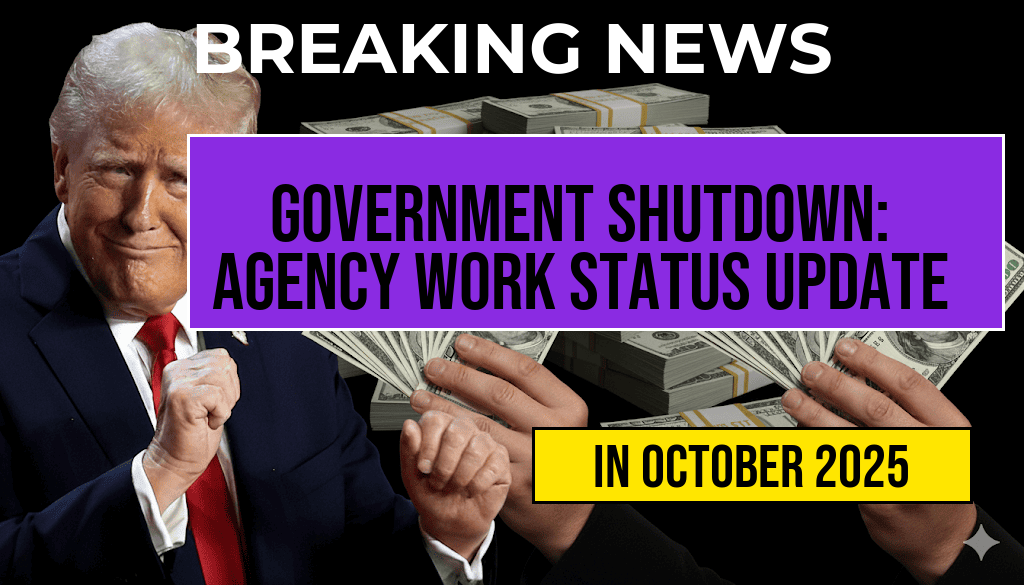The ongoing government shutdown has raised significant concerns across the nation as various federal agencies react differently to the funding lapse. Key agencies such as the Social Security Administration, the Internal Revenue Service (IRS), the Department of Defense, and the Transportation Security Administration (TSA) have been impacted in distinct ways. As federal workers face uncertain futures, essential services may be disrupted, prompting widespread discussions about the implications for millions of Americans. This comprehensive overview details which agencies are operational, which are partially affected, and how citizens can navigate the consequences of the shutdown.
Key Agencies and Their Operational Status
| Agency | Status | Details |
|---|---|---|
| Social Security Administration | Operational | Benefit payments will continue, but new applications may face delays. |
| Internal Revenue Service (IRS) | Partially Operational | Tax processing will slow, and audits may be postponed. |
| Department of Defense | Operational | Military personnel will continue to serve, though some civilian employees may be furloughed. |
| Transportation Security Administration (TSA) | Operational | Security screenings at airports will continue, but overtime may be affected. |
Implications for Essential Services
Social Security Administration
The Social Security Administration remains largely operational during this shutdown. Monthly benefits for retirees, disabled individuals, and survivors will continue uninterrupted. However, new applications for benefits may experience processing delays due to a reduction in administrative staff. For detailed information, beneficiaries can refer to the official SSA website.
Internal Revenue Service (IRS)
The IRS is partially operational, which means that while taxpayers can still file their returns, the processing of refunds and handling of audits will likely experience significant delays. Many IRS employees are not considered essential and may be furloughed. Taxpayers are encouraged to file electronically to minimize delays. Additional guidance can be found on the IRS website.
Department of Defense
The Department of Defense continues its essential operations, ensuring that military personnel remain on duty. Active-duty service members will receive their paychecks, but many civilian employees may face furloughs, leading to potential disruptions in non-essential services. The DoD has emphasized its commitment to maintaining military readiness during the shutdown.
Transportation Security Administration (TSA)
The TSA is functioning normally, with security checkpoints at airports operating as usual. However, the agency has indicated that overtime for security officers may be limited, which could lead to longer wait times at some airports. Travelers are advised to arrive early for flights and stay informed through the TSA website.
Impact on Federal Employees
With the shutdown in place, the fate of approximately 800,000 federal employees hangs in the balance. Many are facing furloughs, while others are working without pay. This situation has prompted various federal unions to voice concerns regarding the financial strain on workers and their families.
Public Services and Safety
The shutdown’s effects extend beyond federal employees to the general public. Essential services, particularly in the areas of public safety and health, remain largely intact. However, agencies such as the Environmental Protection Agency (EPA) and the National Parks Service may experience reduced operations, which could affect environmental regulations and access to public lands.
Conclusion
As the government shutdown unfolds, the operational status of federal agencies varies significantly, impacting services that millions of Americans rely on. While some agencies manage to continue their essential functions, others face challenges that could disrupt service delivery. Citizens are urged to stay informed and plan accordingly as the situation develops.
Frequently Asked Questions
What happens to Social Security payments during a government shutdown?
During a government shutdown, Social Security payments continue as usual. The Social Security Administration is funded through mandatory spending, which means its operations are not directly affected by the shutdown.
Are IRS services available during a government shutdown?
Most IRS services are significantly reduced during a government shutdown. While some essential functions may continue, taxpayers may face delays in processing returns and receiving refunds.
How does a government shutdown affect Defense Department operations?
The Defense Department remains operational during a government shutdown, with active-duty military personnel continuing their duties. However, many civilian employees may be furloughed, impacting non-essential services.
Will airport security staff at the TSA continue to work during a shutdown?
Yes, TSA employees, including airport security staff, are considered essential workers and will continue to work during a government shutdown, ensuring airport security operations remain intact.
What resources are available to learn more about which agencies are affected by the shutdown?
For an up-to-date overview of which agencies are operational and which are not during a government shutdown, you can visit official government websites or consult news outlets providing detailed agency-by-agency breakdowns.











